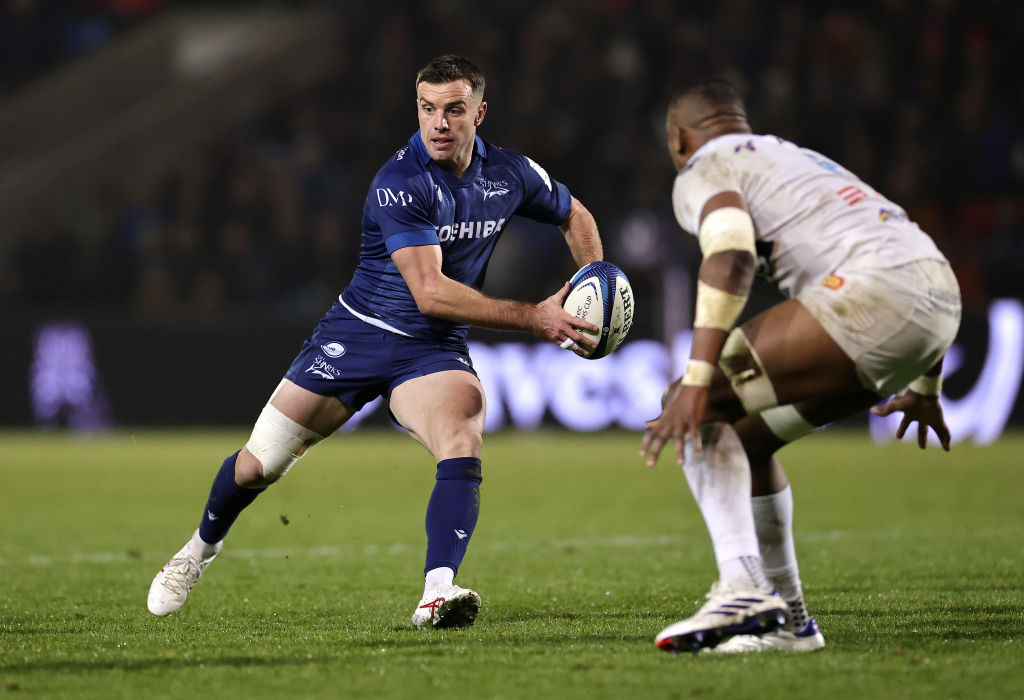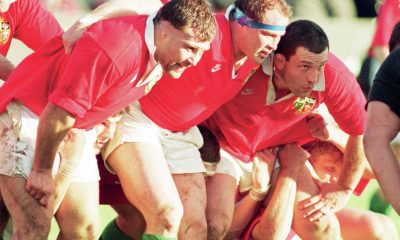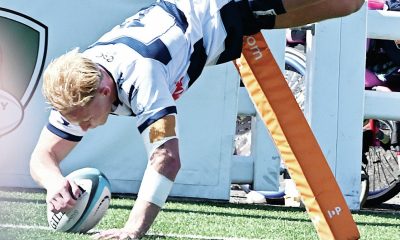 A blistering start to the season with lots of points scored in some outstanding games – but it has to be said there were no major surprises. The remarkable comeback by Quins against newly-reinforced Wasps was surprising only in the fact that it took Quins so long to get going and put points on the board.
A blistering start to the season with lots of points scored in some outstanding games – but it has to be said there were no major surprises. The remarkable comeback by Quins against newly-reinforced Wasps was surprising only in the fact that it took Quins so long to get going and put points on the board.
The fact that Wasps future has been in turmoil throughout the end of last season and most of this pre-season should have left Wasps as a ‘no-hoper’, so it is testament to the work done behind the scenes by Dai Young in settling his squad, while reintegrating James Haskell into his way of doing things and almost getting the result.
I doubt that any of the Wasps players enjoyed last week’s post match debriefing or training sessions, particularly the defence sessions, after giving up a second-half 27 point lead.
The painful introduction to the Premiership that everyone expected for London Welsh happened but it was nowhere near as bad as it could have been, given the opposition they faced.
Playing arguably the Premiership’s premier team and losing by only 25 points despite all the disruption of the ‘will they won’t they’ get promotion during the summer (reducing their season’s preparation time to a minimum), should give Welsh enough encouragement to step up their game to the necessary level.
The disappointments were Sale and London Irish as both teams had undergone major reconstructions on and off the field last season, so you would have thought that by the start of this season they would have had all their ducks in line for a big start.
With both teams losing by 37 points they have helped put the London Welsh result in perspective, particularly Sale who were playing the Premiership’s relative new boys Exeter at Sandy Park.
As the north’s only Premiership side, and given the investment in star names like Danny Cipriani and Richie Gray, I must admit to a certain expectation that they would be one of the big surprises this season. Although it is probably a little too early to judge they will have to improve dramatically if they are to challenge for honours this year, instead of being caught at the wrong end of the table.
Saracens are becoming the Toulon of English rugby with so many star players that it will be impossible to give enough game time to all. But even without the likes of young Owen Farrell they were too strong for an Exiles side that had prepared for the double header with a good win in Ireland.
All in all, the teams have dealt well with the IRB new Law changes, particularly the ‘use it or lose it’ rule which has speeded up the breakdowns and helped those teams that are looking to attack.
Over the past couple of seasons the problem of the ball sitting at the base of a breakdown and not being played forced the IRB into a decision to trial a Law making players use the ball or lose it and it is proving a success so far.
The efforts to solve the problems of the scrum engagement, (by referees shortening the engagement sequence) sadly have not succeeded.
Why after years of varying attempts to give greater control of the engagement of a scrum to referees – even though many of them have never played in a competitive scrum – has the IRB not grasped the nettle and admitted that they have failed?
Last week I outlined the importance of the scrum for the ongoing health of the game. It is, after all, the area that ensures a place for all shapes and sizes, which is one of the most attractive qualities of rugby as a sport.
In the modern game where defence is so strong, it should prove to be one of the best attacking areas for set piece plays – given that it concentrates 16 of the 30 players into one area of the field.
Failure of the IRB to take on board the damage they have done to the game by making the scrum ‘just another way of getting the ball back in play’ and not insisting that referees enforce the Laws as written, has allowed the situation to deteriorate.
The half-hearted attempt of making referees responsible for the engagement while allowing the ball to be put in while the scrum is moving and to excuse a crooked feed, is making a mockery of not only the scrum but also the referees. The IRB must make a real attempt to bring back fully competitive scrums or damage their reputation for continually failing to act.
Warren Gatland‘s appointment as Lions head coach will at last focus the attention of all non-Welsh players in contention for a place on next summer’s tour. I must admit I have reservations re Gatland’s protestations that he will not necessarily pick French based players, Welsh or not.
He knows he has a very good chance of leading a successful tour, but only if he takes the best players, no matter where they are currently playing their rugby.
In fact, playing in the Top14 will almost certainly be better preparation for the players to face Australia than playing in the Pro12 given all the criticism that league has suffered from the Premiership and Top14 over the past season.
As for the players, they will relish the opportunity of travelling to Australia at a time when the national team seems to be in decline and is continuing to suffer at the set piece.
The chance to go to Australia and beat them in their own back yard does not come too often for us in the north– but I’ve got a feeling that next summer the Lions will.

1 Comment
You must be logged in to post a comment Login
Leave a Reply
Cancel reply
Leave a Reply
You must be logged in to post a comment.

Latest News
George Skivington playing it smart at Gloucester

Latest News
English second tier gets rebrand


























Pingback: สมัคร สล็อตออนไลน์ LSM99